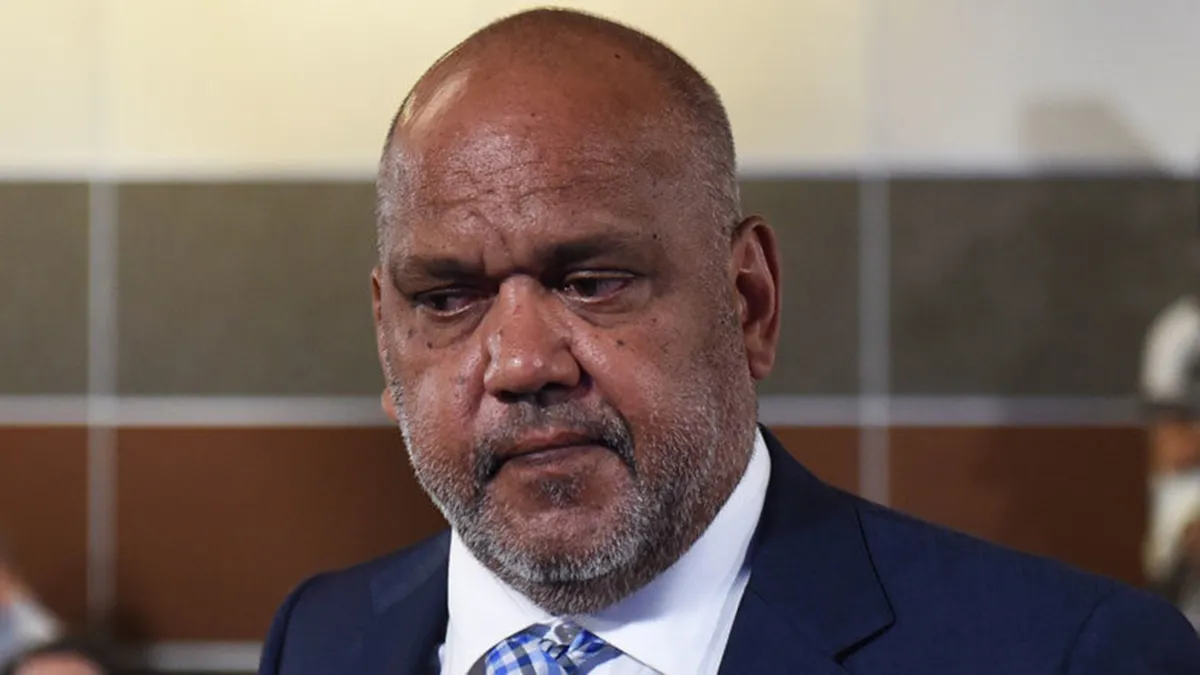Table of Contents
When he isn’t shilling for the divisive, dangerous “Voice” referendum, Noel Pearson occasionally has some decent ideas.
The “Voice” will make not a jot of practical difference to the deplorable state of Aboriginal Australian women and children, while fundamentally dividing the country on racial lines. But there are some very practical ideas which don’t need an apartheid Constitutional amendment.
Such as clamping down on parents whose children don’t go to school.
Noel Pearson has called for welfare payments to be linked to school attendance in the wake of what he described as “appalling” truancy data from northern Australia.
Mr Pearson – a key contributor to the Uluru Statement from the Heart – also renewed his calls for an overhaul of how reading is taught in Australian schools, and regional schools in particular, describing how some Indigenous children were teaching themselves to read through Facebook.
Both of Pearson’s ideas ought to be implemented Australia-wide, with no basis in race.
Mr Pearson, who heads the Good to Great Schools organisation, has also been campaigning for an overhaul in the way reading is taught in schools. He wants schools to embrace “explicit instruction” – a more traditional show-and-tell approach to teaching – instead of the modern “student-led inquiry’’.
A return to explicit instruction ought to be mandated for all schools. No matter what airy-fairy, ivory tower “educational theory” might say, primary and early high school children best learn by explicit instruction. It may offend left-dominated educational bureaucracies to have a “hierarchy” in the class, but it works. Asian schools are perfectly aware of it, and teach accordingly — and that’s why they’re beating the pants off us in school results.
Far too many Australian kids are finishing 12 years of schooling with appalling literacy and numeracy skills. Sadly, though, there’s no denying that the situation is horrifyingly critical for Aboriginal Australian students.
Too many Indigenous children were still illiterate when they finished primary school, meaning they were doomed to fail by the time they reached high school.
The Australian this week revealed data showing year 12 attendance rates as low as 10 per cent in predominantly Indigenous high schools in Western Australia’s Kimberley Region. The WA government has blamed Covid for exacerbating the figures.
[Pearson] told The Australian those attendance numbers were appalling but not surprising, and that he believed the figures would be similar across Australia’s north.
So, what does he propose?
Welfare management, he said, had been an effective tool in improving school attendance rates when trialled in northern Queensland […]
Under that system, the parents of children who repeatedly miss school can be called before the commission of community elders who Mr Pearson said “put the wood” on them to exercise their responsibilities.
“The first resort is to counsel them to do the right thing, but if they don’t respond, the elders can intervene in relation to their welfare payments,” he said.
Rather than lose some of their welfare payments, a portion of that money is instead administered on the family’s behalf by the commission.
Some parts of this approach would be more difficult in non-Aboriginal societies where the old community structures and especially the very culture of respect for elders has been so effectively destroyed by generations of social engineering (indeed, it must be asked where the respect for elders really is, in many violently lawless Aboriginal communities), but the principle is sound.
Otherwise, more generations of Australian kids, Aboriginal and non, but most especially Aboriginal, are doomed to fail.
“If you want to know where the disengaged youth of remote Australia comes from, it comes from [dropping out of school]. The disengaged youth are the juvenile delinquents of tomorrow,” he said.
And bugger me, I’m agreeing with WA premier Mark McGowan.
“If parents in the morning don’t get up and send their kids to school, they’re not doing the right thing by their children,” he said.
“We can provide all the resources in schools, all the support programs, all the education programs, but children need to attend
“That’s why we have to have a culture in which this is understood by everyone across the community, irrespective of where you live, your background or your race, that you have a responsibility here.”
The Australian
It all starts in the home.









